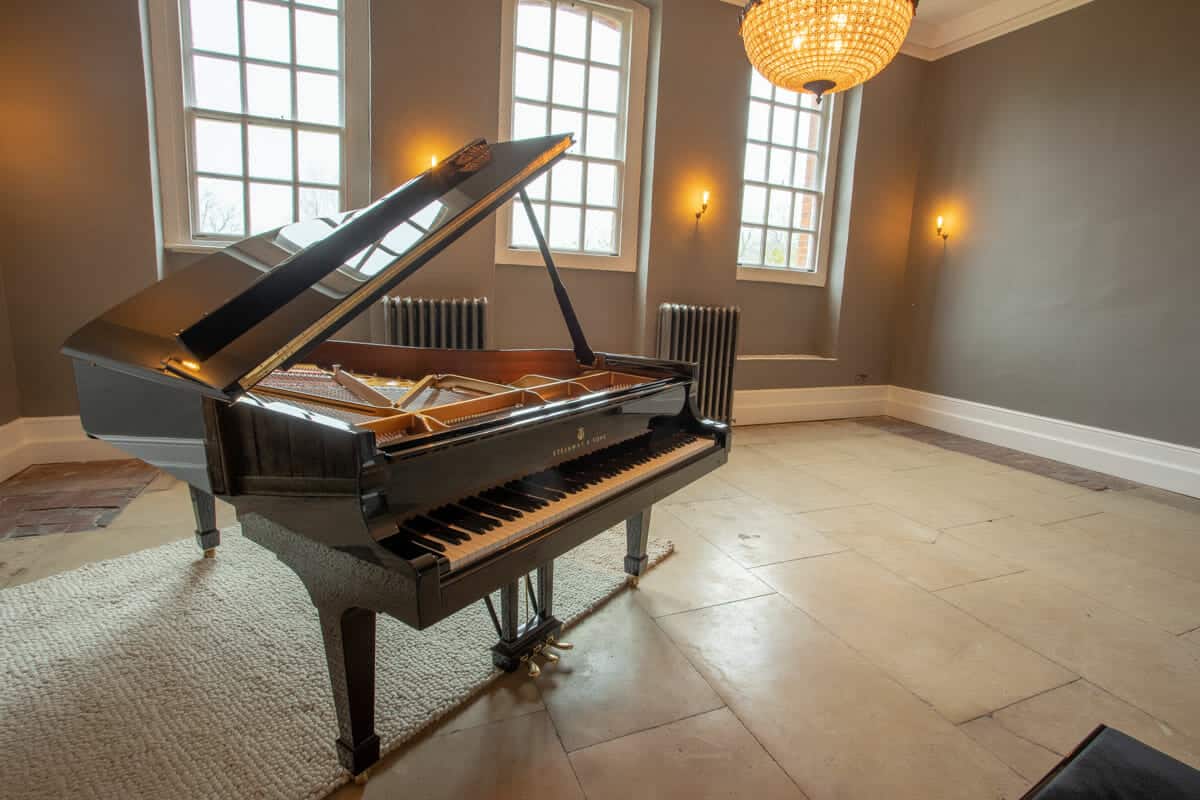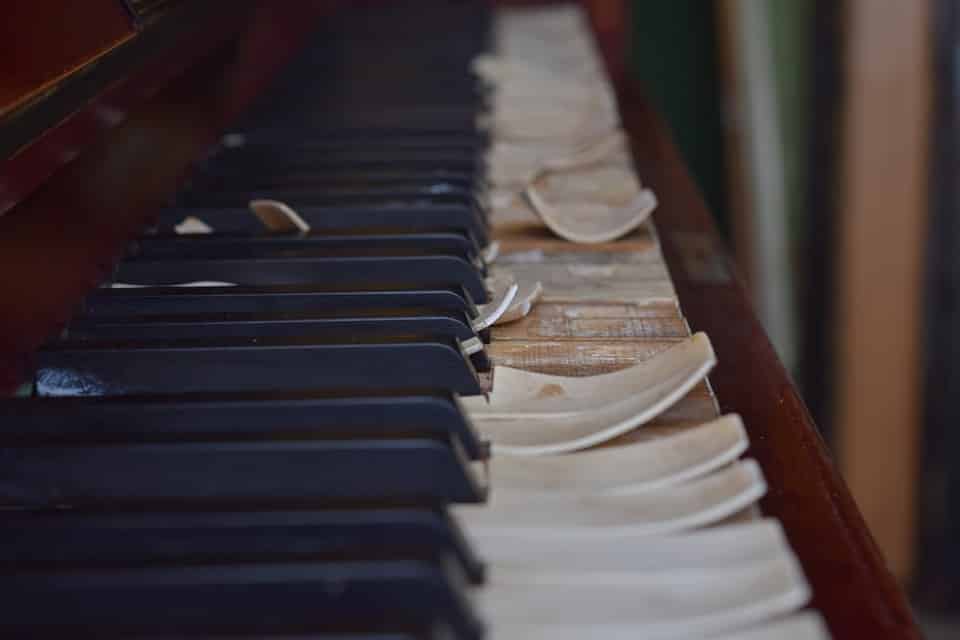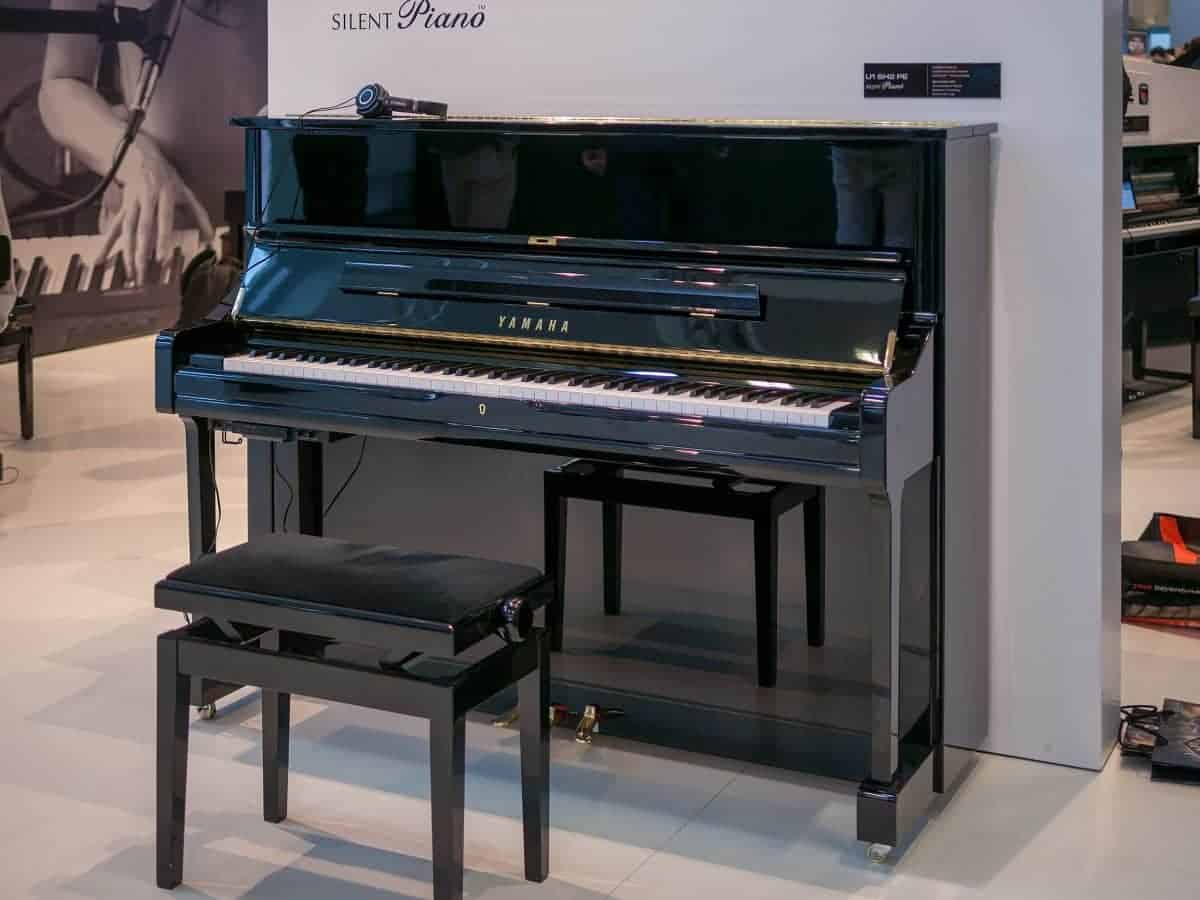While this blog is mainly about learning how to play, maintain and learn the piano, this topic is worth talking about. Chances are, even if you don’t want to quit the piano, you’re going to end up needing to sell a piano at some point or another. Perhaps you’ve slaved away at your trusty old digital piano for several years, and now it’s time to upgrade to a shiny new upright or grand piano. Perhaps you’re downsizing and you need to get rid of your beloved old grand piano in favour of a brand new digital piano. Whatever the reason, selling a piano is a lot like selling a car; it can be a lot of trouble. Fortunately, sites like mine are here to help.
Ultimately, you have two options; you either sell privately, or sell to a dealer, who will then do any work the piano requires and sell it on themselves. What you decide is up to you, however you’re likely to get more money for it if you sell it privately. Selling to a dealer is easier and quicker, however. But what are the advantages and disadvantages of selling a piano in this way?
Firstly; Why Sell?
You may be thinking this is a slightly odd question. However, stay with me. Of course, if you have a very valuable piano that you need to replace with something smaller because you just don’t have the space, you will want to recoup some of the value. However, even if you are selling a digital piano, you probably don’t know that these actually retain their value very well. A digital piano that’s in good shape may well sell for up to 50 - 75% of its original sale value if you find the right buyer.

Secondly is the ecological concern. Pianos are not designed to just be thrown away; you can get decades of use out of a digital or acoustic piano if you treat it right. Of course, if your piano is absolutely beyond repair, then there’s very little chance you’ll be able to pass it on to someone else and it might be better off heading to the dump. However, if your piano was built within the last forty years, or if it’s a well known brand such as Yamaha, Kawai or Bechstein, it will almost certainly be worth something.
Do Pianos Increase in Value?
Generally, no. I’d say that if you buy a new piano today, there’s probably a 10% chance it will increase in value. And to be honest, this only really applies if you are buying a new piano from a prestigious brand, such as Steinway, Fazioli or Bosendorfer. It’s extremely unlikely that anything else will appreciate in value. Other pianos may hold their value, but they are unlikely to increase in value as they get older.
The reason for this is that pianos contain a lot of moving parts, which wear out over time. And the older a piano is, it stands to reason that the less use you will get out of it before it’s beyond its’ useful life and needs to be replaced. The exceptions, as I mentioned, are highly sought after, extremely valuable brands such as Steinway, and they appreciate in value for reasons of brand prestige and heritage. If you've got something like Wurlitzer or Baldwin, it's probably not going to be worth much, if anything.
Another example of this is among upright pianos. If you buy a new Yamaha U1 today, chances are you will be able to sell it on for a large percentage of its’ purchase price in ten years. However, if you buy a cheap brand such as Pearl River or Young Chang, you’re likely to receive a much lower sum in return for selling your piano. This is similar to how it works with almost everything else; if I buy a piece of solid oak furniture, I am going to be able to sell it on for much closer than what I paid for it than if I had bought something from IKEA made out of particleboard.
Does the Age of a Piano Matter?
One thing that’s very important to point out here, because a lot of people get this wrong; just because your piano is old, does not mean it is valuable. Unfortunately, I see a lot of people trying to flog 100 year old pianos for significantly more than they are worth because they believe that old = vintage, and vintage = valuable. It does not work like this. A piano is only worth the musical experience it can give to the player. Pianos are not valuable as furniture, and the vast majority of pianos that have made it to 100+ are well beyond their intended service lives, have numerous technical and mechanical problems and will cost more to repair than the piano is worth. Don’t even bother; your grandma’s old upright may have a lot of sentimental value, but in reality, it’s worth almost zero cash value and you’re better off using it as firewood rather than trying to sell it to a dealer or on eBay.

To sum up; if it’s a valuable brand, or has been built within the last 40 years, it’s probably worth selling. If it’s anything else, it’s probably only worth it’s scrap value.
Where to Sell a Piano
To a dealer
This is by far the quickest way to sell a piano. It’s also the easiest, providing you have a piano that a dealer is going to want to buy. Again, the principles we spoke about earlier still apply; if you have a Yamaha, Kawai, Steinway, etc and it’s in good condition, the dealer is probably going to be interested. If you have something that’s any older than forty years, or is in very poor condition, a dealer won’t be interested in the slightest, because it will be very hard for them to sell it on.
Just bear in mind that there are exceptions for niche manufacturers, or types of piano that have a strong used market. For example, here in the UK, there is a large market for baby grand pianos made by English manufacturers between the 1930s and 1950s, such as those made by Chappell, Challen and Danemann. You will have to do some market research to see if your piano fits into this category; see what local dealers are asking.
It’s worth shopping around several local dealers to see what they’re prepared to offer you. Obviously, you should go with the one who’s prepared to offer you the best price. Most dealers should be willing to come and take the piano away from you for free, too. It goes without saying that you should make sure the dealer you contact is reputable; visit their showroom, call them up, have them come over to your house to inspect the piano. Other than that, this is a fairly easy and quick way to sell your piano, and you should have it out of your house in a couple of weeks.

Selling Privately
This is where you can potentially make more money, but it’s also a little more risky. A dealer is not going to offer you market rate for your piano simply because their ultimate aim will be to sell it on. They may have to do some work to the piano to get it into what they would consider to be saleable condition. This is the tradeoff for the dealer giving you a wad of cash and taking your piano away within a few days.
If you’re prepared to wait a little longer for your money, you could potentially sell it on the private market. This really should be the same as selling any other second hand item. List it on Craigslist, on eBay, in local classifieds, etc. If someone expresses an interest, let them come over to your property to try the piano. This is a must, and most people won’t buy a piano before they try it. You should accommodate this; if you don’t you’ll find it much more difficult to sell. Agree a price with someone and arrange for them to take it away.
Don’t allow them to take the piano away before they’ve paid for it. Make sure you have the cash in your hand before the piano leaves your home!
It’s worth mentioning that for digital pianos this is probably going to be your only option; most dealers won’t take a used digital, as the profit potential on them is very thin. Most people prefer to buy a digital new, but accept that they’re probably going to have to buy a preowned acoustic piano given the massive expense of a new one. The advice remains the same; study the market, list your piano for a sensible price, and accommodate any buyers who want to try it out.
Hopefully this little guide has been helpful; if you want any more advice, please leave me a comment below. I’m always happy to help out a fellow pianist.
Until next time, happy practicing!

How much is a Schiedmayer & Soehne Stuttgart. Modell 20, Serial No. 23846, built 1901 – 1910.
Bought by grandfather 9 June 1954 from Allan & Co excellent condition
Electronic pianos generally start falling apart after five to ten years. As a church musician, I’ve gone through six electronic instruments in the last thirty-three years.
we have a baldwin upright that has not had much use since my daughter only took lessons for a couple of years and went on to the flute!
it is in perfect condition as far as the woodwork is concerned, has not been tuned since no one plays it.
where does baldwin stand in value compared to other brands? thinking about donating. mostly need a pick up that will not damage my home! thanks, joyce kaffel
Check out PianoMart for a place to sell used pianos. The website has sellers from all over the country and they offer a free escrow service so you know the buyer has the money before you let your instrument out the door! It’s also a great resource to figure out at what price what different types of instruments are selling.